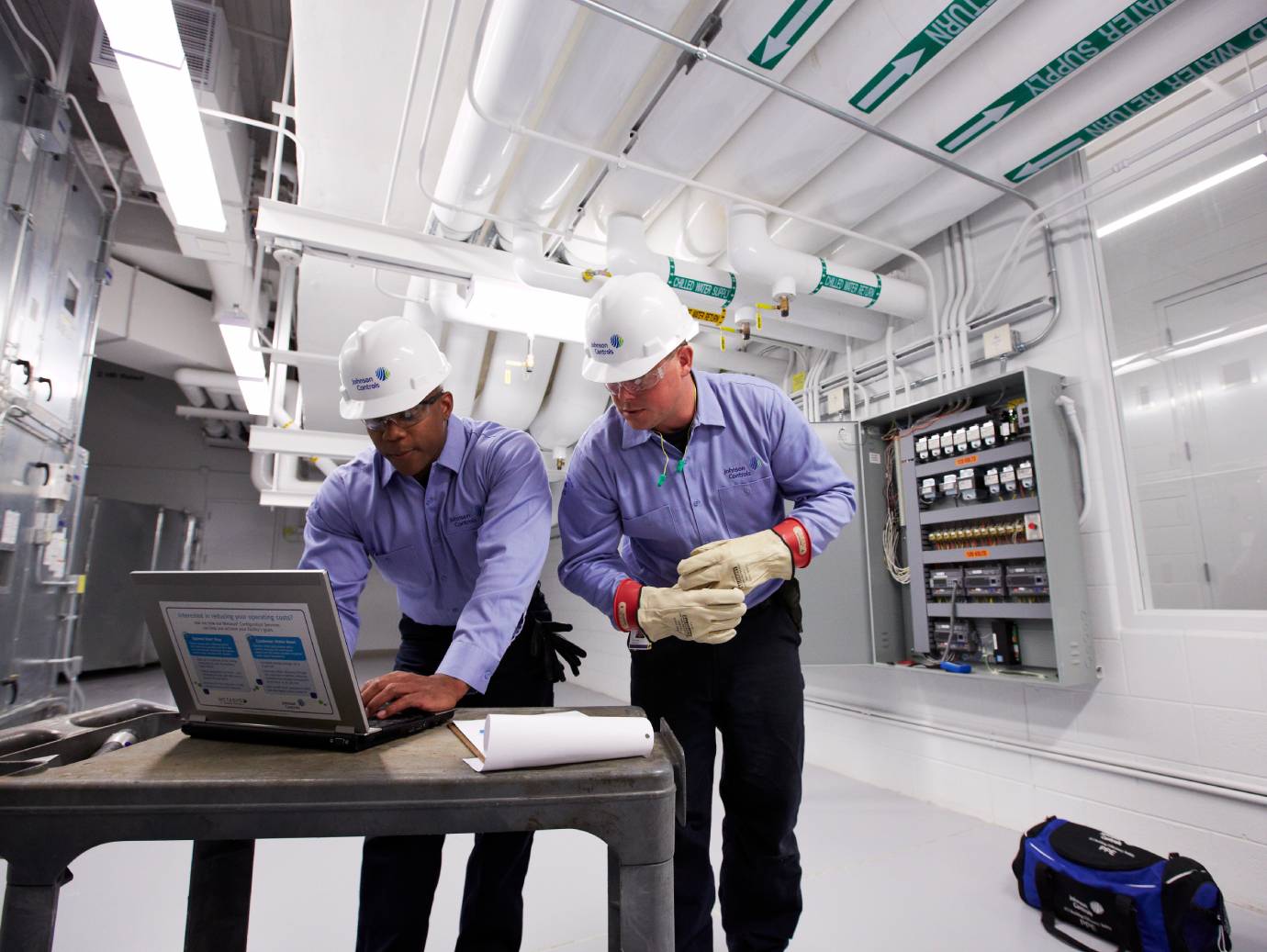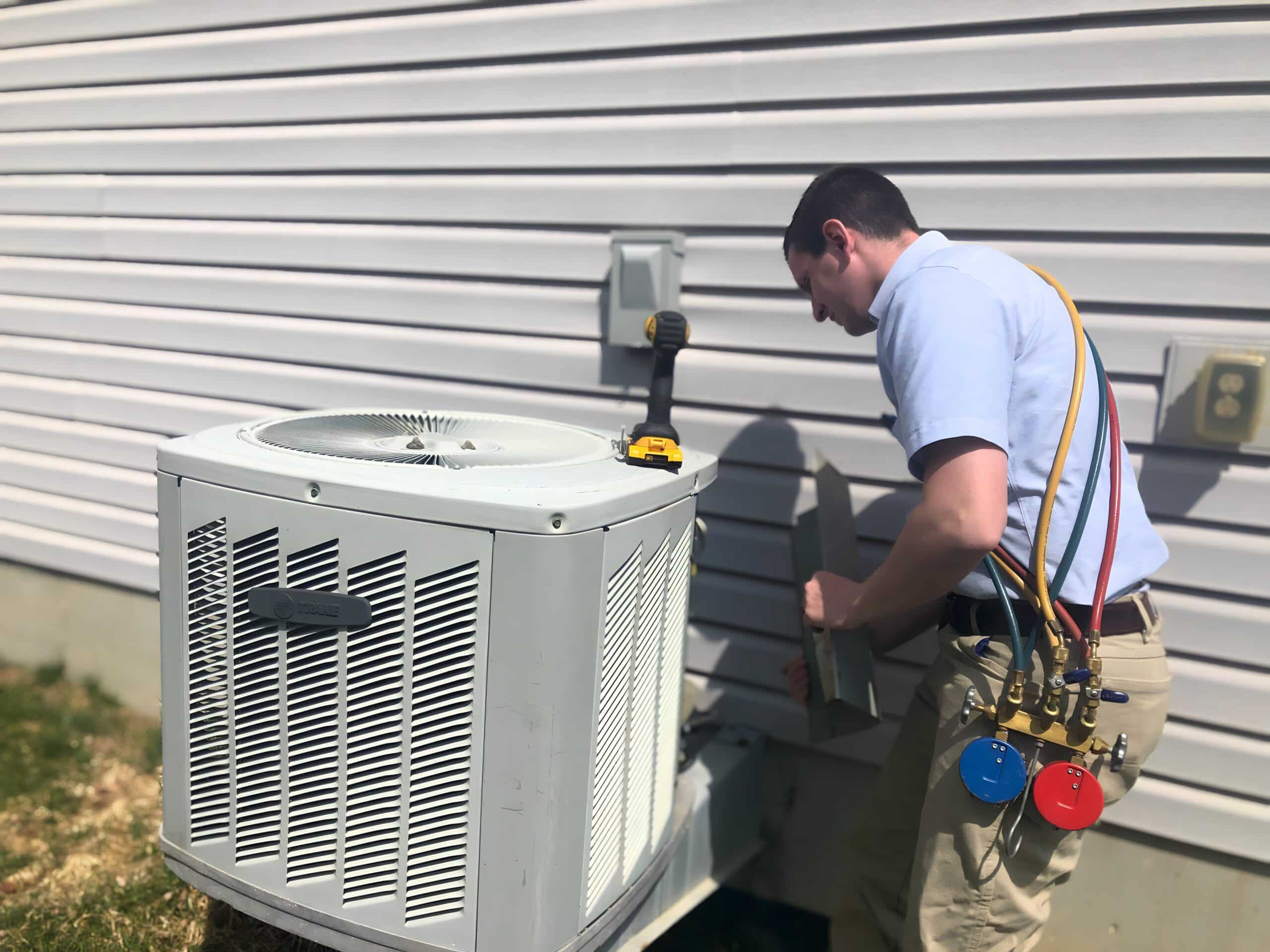Picking Between a Heat Pump and Furnace: Key Considerations for Your Cooling And Heating Demands
When assessing heating choices for heating and cooling requires, the decision in between a heat pump and a furnace can be complex. Each system uses distinctive benefits customized to details environments and energy efficiency goals. Understanding these differences is crucial for making an informed choice. Key factors such as installment costs and ecological influence further complicate the choice procedure. Which alternative absolutely aligns with one's comfort and sustainability choices? The adhering to areas will check out these factors to consider thoroughly.
Comprehending Warm Pumps: How They Function and Their Advantages
While several homeowners consider numerous home heating alternatives, recognizing just how warmth pumps function and their advantages can considerably influence their choice. Warm pumps run by transferring warmth as opposed to creating it. In the winter months, they draw out warm from the outside air or ground and transfer it indoors, while in the summer season, they reverse this procedure, cooling the home by expelling warmth outside. This twin performance makes them flexible for year-round climate control.One of the key advantages of warm pumps is their energy performance. They make use of substantially much less electrical energy contrasted to standard furnace, potentially causing lower utility expenses (furnace replacement). Additionally, warmth pumps have a smaller carbon footprint, making them an eco-friendly option. They additionally require less maintenance than standard systems, adding to long-lasting price savings. Overall, comprehending the technicians and advantages of heat pumps can aid home owners make notified choices regarding their home heating and cooling down demands
Checking Out Furnaces: Types, Operation, and Advantages
Furnaces are available in numerous kinds, consisting of gas, electrical, and oil versions, each with distinct operational mechanisms. Comprehending these distinctions is vital, as they affect performance and heating performance. Additionally, furnaces provide various benefits, such as consistent heat output and integrity in cooler environments.
Sorts of Heating systems
Heating systems can vary substantially in layout and procedure, with heaters being a popular choice amongst home owners. There are numerous kinds of heating systems, each utilizing different gas sources and technologies. Gas furnaces prevail, leveraging gas to create heat efficiently. Electric heating systems, on the various other hand, utilize electrical resistance to create warmth, commonly favored for their straightforward setup. Oil heaters, while less typical, are effective in areas with restricted gas accessibility (furnace replacement). Furthermore, condensing heating systems make best use of energy efficiency by catching and recycling exhaust gases. Each kind runs with a system of heat exchangers and ductwork to distribute cozy air throughout a home. Comprehending the differences in between these heating system kinds is important for informed heating and cooling choices
Advantages of Heaters
For home owners looking for reliable heat during cold months, the advantages of heating systems are considerable. Furnaces offer regular heating, making sure also temperatures throughout the home. They are especially reliable in severe cool, typically surpassing heatpump in cold conditions. Various types, consisting of gas, electric, and oil furnaces, provide versatility to satisfy varied demands and preferences.Furnaces additionally tend to have lower initial installation expenses compared to heatpump, making them a much more easily accessible choice for lots of. Their durable layout adds to a longer life-span, with several devices lasting over 15 years with correct upkeep. In addition, modern-day heaters are usually equipped with innovative modern technology for boosted performance, which can cause minimized energy bills. Overall, heaters continue to be a reputable option for efficient home heating.

Power Performance: Comparing Warmth Pumps and Furnaces
When contrasting power performance in between heatpump and heaters, the Seasonal Power Effectiveness Ratio (SEER) plays a necessary duty in establishing efficiency. Furthermore, an operational expense analysis reveals the lasting economic effects of each system. Comprehending these aspects can lead home owners in making educated decisions about their home heating options.
Seasonal Energy Efficiency Proportion
Energy efficiency plays an important role in the decision-making procedure between heatpump and heaters, especially when considering the Seasonal Power Efficiency Proportion (SEER) This statistics steps the cooling efficiency of heatpump over an entire air conditioning season, providing a standardized means to review performance. Greater SEER ratings show greater power efficiency, converting to lower power consumption and decreased energy bills. On the other hand, furnaces are generally analyzed utilizing the Yearly Gas Use Performance (AFUE) rating, which shows home heating effectiveness. When contrasting these two systems, house owners should focus on SEER rankings for heatpump, as they straight influence overall power savings and environmental sustainability. A comprehensive understanding of SEER can especially influence the lasting complete satisfaction and cost-effectiveness of the picked heating and cooling remedy.
Operational Price Analysis
Comprehending the functional expenses connected with heatpump and heating systems is essential for property owners reviewing their options. Heatpump usually supply greater energy effectiveness, converting electric power right into heat with minimal waste. This results in lower regular monthly utility costs, particularly in moderate environments. Alternatively, typical heating systems, especially gas versions, might have reduced ahead of time prices however can incur higher operational costs gradually as a result of sustain prices and efficiency ratings.Moreover, heatpump can work as both home heating and cooling systems, possibly lowering the demand for separate a/c devices. While preliminary investments for heatpump might be greater, their long-lasting financial savings in power effectiveness can make them a much more affordable selection for many households. Mindful evaluation of local power rates is necessary to establish the ideal choice.
Installation Costs: What to Anticipate for every Heating System
Installment costs for home heating systems can vary considerably in between heat pumps and heaters, influencing home owners' decisions. Heatpump normally have greater in advance setup prices, normally ranging from $3,500 to $8,000, depending on the system dimension and complexity of setup. This consists of the outside device, indoor handling system, and needed ductwork modifications. On the other hand, furnaces have a tendency to have reduced initial expenses, balancing in between $2,500 and $6,000, which can be appealing for budget-conscious property owners. Installment expenditures can increase if substantial ductwork is required.Moreover, the selection of gas type for furnaces-- natural gas, lp, or electric-- can likewise affect installment prices. While warmth pumps offer energy effectiveness, their preliminary financial investment might deter some buyers. Eventually, reviewing installation costs together with long-term savings and effectiveness will certainly assist home owners in making informed choices concerning their home heating systems.
Climate Considerations: Which System Carries Out Much Better in Your Area
Just how do environment problems influence the effectiveness of heating systems? The efficiency of heatpump and heaters can differ substantially depending upon the local climate. In modest environments, heatpump excel by successfully moving warm from the outside air, making them an energy-saving alternative. Nonetheless, their effectiveness decreases in incredibly cold temperature levels, where they might have a hard time to extract enough heat. On the other hand, furnaces, especially gas models, provide dependable and consistent heat no matter of outside problems, making them better in chillier regions.In locations that experience milder wintertimes, heatpump can run efficiently year-round, providing both cooling and heating. In contrast, regions with severe winters months commonly benefit from the toughness of heaters. Ultimately, comprehending the regional climate is vital when choosing in between a heatpump and a furnace, as it directly impacts their operational effectiveness and general efficiency.
Maintenance Requirements: Long-Term Take Care Of Warmth Pumps vs. Furnaces
While both warmth pumps and heaters need routine maintenance to guarantee peak efficiency, their certain requirements and care regimens differ considerably. Heaters commonly require less frequent focus, with annual evaluations sufficing check here to examine for gas leakages, clean filters, and analyze total performance. Their simpler layout often permits straightforward repairs.In comparison, heatpump demand biannual upkeep because of their dual duty in home heating and air conditioning. This consists of cleaning coils, examining refrigerant degrees, and guaranteeing that both the exterior and indoor systems function at their finest. In addition, warm pump upkeep typically involves more complex components, making expert maintenance essential.Neglecting maintenance can result in lessened efficiency and boosted power costs for both systems. Ultimately, home owners should think about these long-term treatment requirements when choosing between a warmth pump and a heater, as proactive maintenance can prolong the life expectancy and performance of either system significantly.
Ecological Influence: Choosing a Sustainable Heating Choice
The environmental effect of heater is a crucial analysis for property owners article source seeking sustainable choices. Warmth pumps are usually more energy-efficient than traditional furnaces, as they transfer heat as opposed to generate it, significantly lowering carbon emissions. By utilizing renewable power resources, such as air-source or geothermal heatpump, house owners can additionally minimize their environmental footprint.On the other hand, natural gas heaters emit greenhouse gases and contribute to air contamination, though they usually provide greater warm outcome. Advancements in technology have actually led to the advancement of high-efficiency furnaces that minimize emissions.Ultimately, choosing a home heating system includes weighing effectiveness against environmental impact. Home owners are motivated to mirror on regional power sources and motivations for renewable systems, ensuring an option that aligns with both personal convenience and environmental obligation. The choice affects not just instant comfort however additionally long-term sustainability and ecological health and wellness.
Regularly Asked Concerns
How Much Time Do Heat Pumps and Furnaces Generally Last?
The life-span of heat pumps usually varies from 15 to 20 years, while heaters can last in between 15 to three decades. Regular maintenance substantially affects their longevity and effectiveness in giving home heating solutions.
Can I Utilize a Heatpump in Very Cold Climates?
Heatpump can operate in extremely chilly climates, yet their effectiveness lessens as temperature levels drop. In such conditions, additional heating sources might be needed to preserve comfy interior temperature levels and assure peak performance.

What Is the Sound Degree of Heat Pumps Versus Furnaces?
The noise degrees of heat pumps and heating systems differ significantly. Typically, heatpump operate more silently than traditional furnaces, making them better for those conscious seem, while furnaces may generate louder operational noises throughout heating cycles.
Are Warmth Pumps Suitable for Both Cooling And Heating?
Heatpump are undoubtedly appropriate for both heating and cooling (heat pump installation ooltewah tn). They function by moving warm, offering effective temperature level control year-round, making them a versatile selection for house owners looking for an all-in-one cooling and heating solution
What Dimension Heating Unit Do I Required for My Home?
Figuring out the appropriate dimension heater for a home calls for evaluating elements such as square video footage, insulation high quality, neighborhood environment, and the home's layout. Consulting a professional can assure an exact analysis and ideal convenience. Warmth pumps typically supply higher energy effectiveness, transforming electrical power into warm with very little waste. In modest Clicking Here environments, warmth pumps stand out by successfully transferring heat from the outdoors air, making them an energy-saving option. Conversely, heating systems, specifically gas versions, provide reputable and constant heat no matter of outside problems, making them more suitable in colder regions.In areas that experience milder wintertimes, warm pumps can run efficiently year-round, providing both home heating and cooling. Heat pumps are normally extra energy-efficient than standard heaters, as they transfer warm rather than create it, significantly reducing carbon discharges. By using renewable power sources, such as geothermal or air-source warmth pumps, homeowners can further minimize their environmental footprint.On the various other hand, natural gas furnaces give off greenhouse gases and contribute to air pollution, though they commonly supply greater warmth outcome.
Comments on “Things to Know Before Your heat pump replacement ooltewah tn Starts”